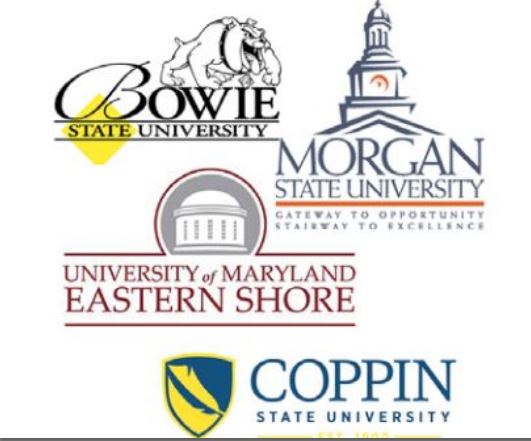[ad_1]
By Lawrence Haynes and Kayla Elliott
The contributions of HBCUs to the stability, ingenuity and prosperity of our nation cannot be overstated. If we fail to invest in, protect and support HBCUs then we would have jeopardized the future of students and our nation. In Maryland, HBCUs have been unfairly shortchanged for decades.
In October 2013, Judge Catherine Blake ruled that Maryland had been sustaining segregation by allowing the state’s predominantly White institutions (PWIs) to duplicate the programs of its four public HBCUs, thereby undercutting HBCU enrollment.
More than six years after the initial ruling, the state has yet to offer adequate restitution for the decades of harm perpetuated by racist practices. In 2018, Gov. Larry Hogan offered the HBCUs $100 million, then increased the offer last year to $200 million over 10 years, take it or leave it. Today, we’re proud to work in coalition with HBCU students and alumni who are fighting for justice.

Maryland has an opportunity to do right by its Black students by investing in their future success. We’re grateful that Del. Adrienne Jones, Maryland House speaker, has introduced legislation that would require the governor to spend $580 million over the next 10 years. If enacted, the bill would be an important step toward fulfilling the state’s promise to provide a quality higher education for all Maryland residents.
If the legislature and governor do nothing, the State of Maryland will be sending a clear message about how much (or how little) it values the education of its Black residents.
This is no time for foot-dragging.
In Maryland, only 36.9 percent of Black adults between the ages 25-64 currently have a college degree, and there’s a 16.7 percent gap between the shares of bachelor’s degrees awarded to White residents and those going to Black residents.
The state must prioritize HBCU funding and the educational success of Maryland’s Black students. It’s in the state’s economic interest, since Maryland’s four HBCUs collectively enroll more than half of the state’s Black students seeking bachelor’s degrees at public institutions and graduate 35.8 percent of all Black public undergraduate degree earners in the state, despite these institutions’ small size, budget, and enrollment. HBCUs also educate the lion’s share of the state’s students from low-income backgrounds, and these institutions are essential to achieving Maryland’s 55 percent postsecondary degree attainment goal by 2025 to ensure that the state’s workforce is truly competitive. In Maryland, students of color are more likely to attend four-year colleges than their counterparts in other states, in part because they have so many HBCU options. Thus, investment in HBCUs is an important part of making education equity real.
HBCUs are not a charity: their students, alumni, faculty, staff, and administrators are all taxpayers. Maryland’s HBCUs more than hold their weight in the state economy. According to research by UNCF, a Maryland HBCU graduate working full time throughout his or her working life can expect to earn $985,000 more than she or he would have earned without a college credential. Maryland’s HBCUs collectively generate $1 billion in total economic impact for the state every year, via direct spending by HBCUs on faculty, employees, academic programs and operations and spending by HBCU students, not to mention the follow-on effects of that spending. In fact, every $1 million initially spent creates 14 jobs annually. All told, the researchers estimated that Maryland’s HBCUs had generated over 9,000 jobs for their local and regional economies in 2014. An investment in HBCUs is an investment in the Maryland economy.
There are similar legal settlements Maryland leaders might learn from. Mississippi agreed to pay up to $503 million dollars over 17 years to its three HBCUs when the Ayers case was finally settled in 2002, though it has yet to pay the full amount thanks to unrealistic enrollment stipulations. Sadly, Maryland seems headed toward the path of the Knight v. James case in Alabama, which dragged on for 26 years. But by working in partnership with HBCU advocates, Maryland has an opportunity to be the first state to make real progress on equity for public HBCUs and their students.
As the legislature considers the Kirwan Commission’s recommendations, it should also recognize that approving this settlement would help Maryland make positive strides toward racial equity for students across the state: This is a golden opportunity to boost degree attainment rates, close equity gaps within the state, and invest in engines of economic growth.
Maryland has a moral and economic obligation to do right by its HBCUs. Without a college-educated workforce that fully includes Black residents, Maryland’s businesses and economy will suffer.
What’s the hold up?
Kayla Elliott is senior policy analyst for higher education at The Education Trust. Lawrence Haynes is higher education policy analyst at The Education Trust.
The opinions on this page are those of the writers and not necessarily those of the AFRO.
Send letters to The Afro-American • 1531 S. Edgewood St. Baltimore, MD 21227 or fax to 1-877-570-9297 or e-mail to [email protected]
[ad_2]
Source link
